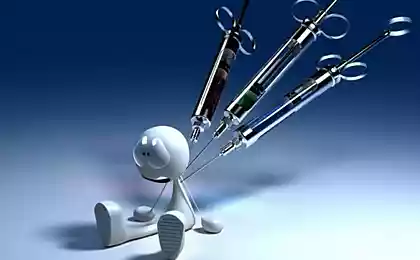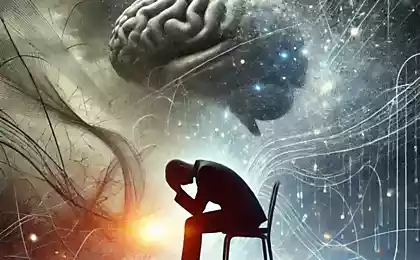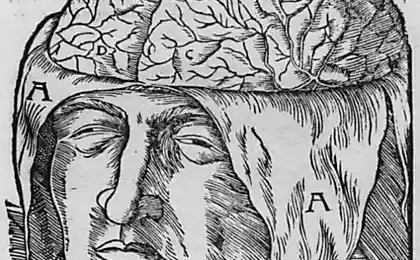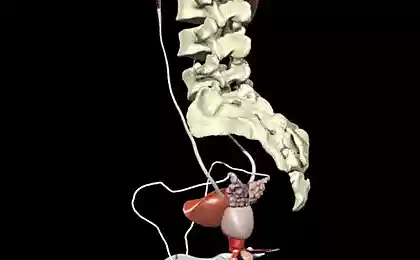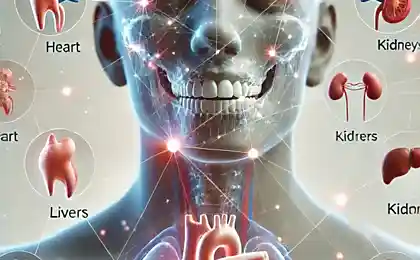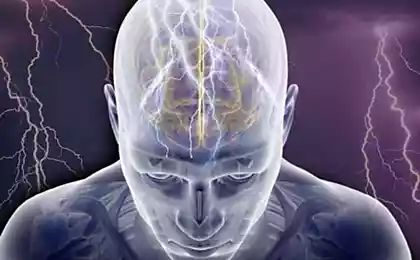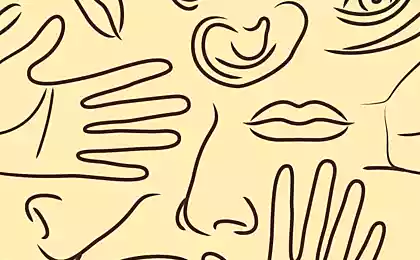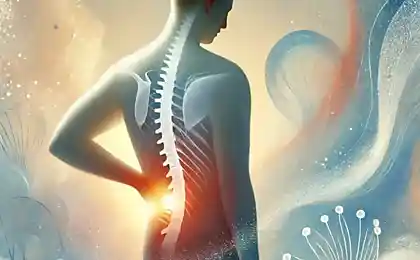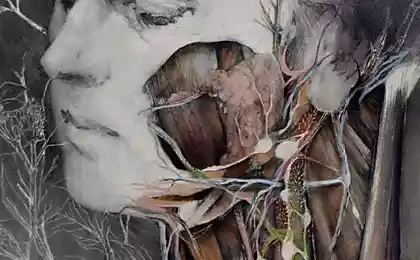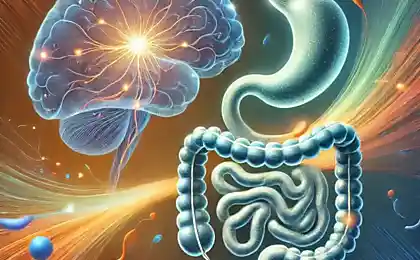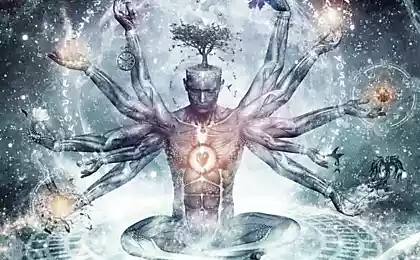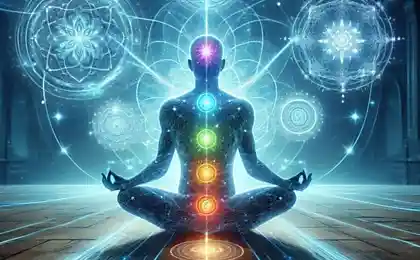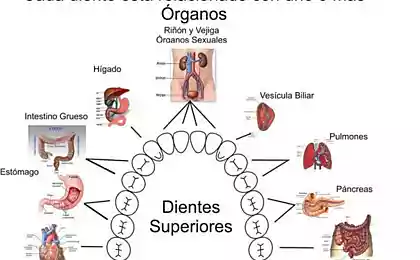473
The relationship of internal organs and psychosomatic diseases
Many psychological problems and physical illness are interrelated and may depend on the state of internal organs. The condition of the internal organs can shape a person certain traits, positive and negative emotions.
Bodies are kept in pairs according to the canons of the Eastern ZHEN-JIU therapy on the basis of mutual influence on each other.
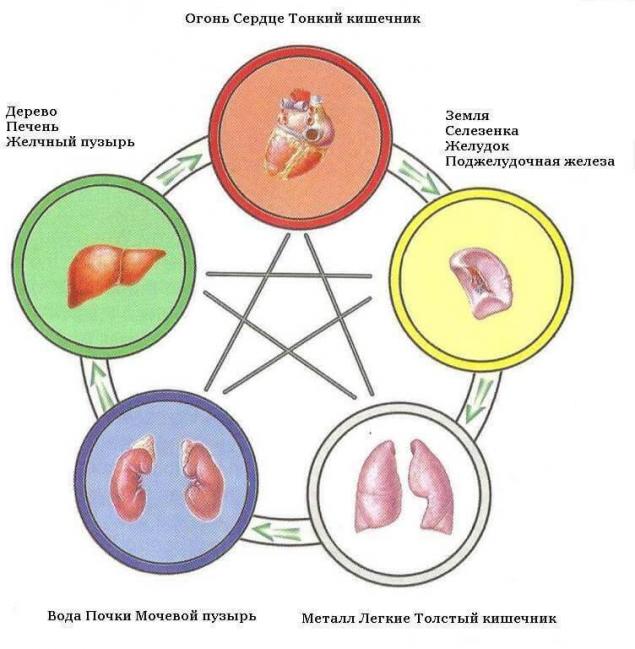
THE LIVER AND GALLBLADDER
Positive are: kindness (primary); the courage balanced by intelligence, composure and prudence in actions; freedom; creativity; clarity of thought, backed by elements of progressive and constructive; commitment to peace and willingness to cooperate.
The negative are: anger (main); cruelty; a penchant for inventing a Grand ambitious plans, without the knowledge of ways to implement them; impulsiveness; rashness; hype; a penchant for profanity; obsession; stubbornness; pedantry; formalism and antagonism; the desire for competition; a tendency to violence and murder, which is enhanced by attaching a negative emotion of the kidney (the so-called extraprise, aggression directed to the outside world).
HEART AND SMALL INTESTINE
Positive are the joy (main); happiness; loving; spirituality; warmth and compassion; honesty and generosity; kindness; patience; respect for people; politeness; elegance; intelligence and participation.
The negative are: cruelty; anxiety; emotional coldness; cruelty; servility; disrespect to others; thoughtlessness in deeds; lack of taste; impatience; boredom; lack of a sense of humor; malice; fear of sickness and death; resentment with the desire to repay; irritability from children, noise, bustle, bright lights; hysteria.
PANCREAS AND STOMACH
Positive are: optimism; balance; the tendency to reflect; sincerity; spiritual openness; trust and confidence; alertness; thoroughness; reasonable rationality; balance of desires and possibilities; punctuality; coherence with others; sociability; hospitality; mandatory ("a man of my word).
The negative are: ill will; discontent; anxiety; restlessness; sensitivity and vulnerability; prejudice; tendency to prejudice; excessive concern or anxiety; poor orientation in time (always in a hurry and always late, the lack of time); clumsiness; tension; falsehood; talkativeness; the unbalance in the communication; desire for isolation; envy; gluttony, passing then to the lack of appetite; loss of friendship and self-esteem; claustrophobic.
THE LUNGS AND LARGE INTESTINE
Positive are: acumen; integrity; intuition; earnestness; resolute to heroism; hardness attitudes; masculinity; honesty; reliability; generosity; the ability to forgive and to share with others.
Are negative: sadness (though light); sadness; depression; pessimism; tendency to defeatism and the exaggeration of trouble; dishonesty; unnatural; casemate; suspiciousness; unreliable; irresponsible; pettiness; jealousy; resentment; hypocrisy.
KIDNEY AND BLADDER
Positive are: cheerfulness; calmness; calm; courage; freedom; caution and rationality; sensitivity; persistence (but not stubbornness) in achieving the noble goal.
The negative are: fear (instinctive); phlegm; passivity; apathy; coldness; confusion; narrowness of mind; inconstancy; excess; paranoia; avarice; secretiveness, lack of initiative and walking in circles without achieving tangible results; burdened with work, friends, family and your life (life is meaningless); suicidal, if you increase negative emotions of the lungs (introgressed).
See also: If you lather less, you will live longer!
Vegetative-vascular dystonia of mixed type
Knowing about the involvement of a particular emotion to internal organ, you can understand which of the organs begins to suffer, to determine the degree of development of pathological process and its direction, to predict the outcome of treatment.published
P. S. And remember, only by changing their consumption — together we change the world! ©
Join us in Facebook , Vkontakte, Odnoklassniki
Source: vk.com/wall-23903469?w=wall-23903469_4674
Bodies are kept in pairs according to the canons of the Eastern ZHEN-JIU therapy on the basis of mutual influence on each other.

THE LIVER AND GALLBLADDER
Positive are: kindness (primary); the courage balanced by intelligence, composure and prudence in actions; freedom; creativity; clarity of thought, backed by elements of progressive and constructive; commitment to peace and willingness to cooperate.
The negative are: anger (main); cruelty; a penchant for inventing a Grand ambitious plans, without the knowledge of ways to implement them; impulsiveness; rashness; hype; a penchant for profanity; obsession; stubbornness; pedantry; formalism and antagonism; the desire for competition; a tendency to violence and murder, which is enhanced by attaching a negative emotion of the kidney (the so-called extraprise, aggression directed to the outside world).
HEART AND SMALL INTESTINE
Positive are the joy (main); happiness; loving; spirituality; warmth and compassion; honesty and generosity; kindness; patience; respect for people; politeness; elegance; intelligence and participation.
The negative are: cruelty; anxiety; emotional coldness; cruelty; servility; disrespect to others; thoughtlessness in deeds; lack of taste; impatience; boredom; lack of a sense of humor; malice; fear of sickness and death; resentment with the desire to repay; irritability from children, noise, bustle, bright lights; hysteria.
PANCREAS AND STOMACH
Positive are: optimism; balance; the tendency to reflect; sincerity; spiritual openness; trust and confidence; alertness; thoroughness; reasonable rationality; balance of desires and possibilities; punctuality; coherence with others; sociability; hospitality; mandatory ("a man of my word).
The negative are: ill will; discontent; anxiety; restlessness; sensitivity and vulnerability; prejudice; tendency to prejudice; excessive concern or anxiety; poor orientation in time (always in a hurry and always late, the lack of time); clumsiness; tension; falsehood; talkativeness; the unbalance in the communication; desire for isolation; envy; gluttony, passing then to the lack of appetite; loss of friendship and self-esteem; claustrophobic.
THE LUNGS AND LARGE INTESTINE
Positive are: acumen; integrity; intuition; earnestness; resolute to heroism; hardness attitudes; masculinity; honesty; reliability; generosity; the ability to forgive and to share with others.
Are negative: sadness (though light); sadness; depression; pessimism; tendency to defeatism and the exaggeration of trouble; dishonesty; unnatural; casemate; suspiciousness; unreliable; irresponsible; pettiness; jealousy; resentment; hypocrisy.
KIDNEY AND BLADDER
Positive are: cheerfulness; calmness; calm; courage; freedom; caution and rationality; sensitivity; persistence (but not stubbornness) in achieving the noble goal.
The negative are: fear (instinctive); phlegm; passivity; apathy; coldness; confusion; narrowness of mind; inconstancy; excess; paranoia; avarice; secretiveness, lack of initiative and walking in circles without achieving tangible results; burdened with work, friends, family and your life (life is meaningless); suicidal, if you increase negative emotions of the lungs (introgressed).
See also: If you lather less, you will live longer!
Vegetative-vascular dystonia of mixed type
Knowing about the involvement of a particular emotion to internal organ, you can understand which of the organs begins to suffer, to determine the degree of development of pathological process and its direction, to predict the outcome of treatment.published
P. S. And remember, only by changing their consumption — together we change the world! ©
Join us in Facebook , Vkontakte, Odnoklassniki
Source: vk.com/wall-23903469?w=wall-23903469_4674

